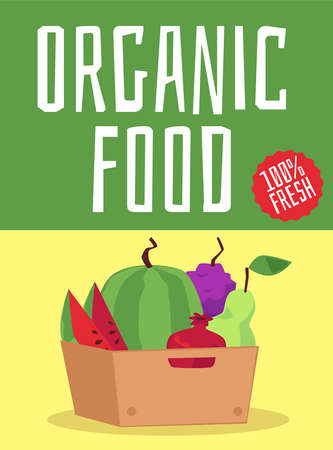Introduction: The UK Detox Craze and Its Roots
In recent years, juice and smoothie detox programmes have swept across the UK, becoming a popular choice for those seeking to restore balance and boost their health. This fascination with detoxing reflects not only a global wellness trend but also unique aspects of British lifestyle and culture. As the seasons shift—bringing damp winters and unpredictable springs—many people in the UK turn to these liquid cleanses in hopes of resetting their bodies and minds. The tradition of seeking seasonal renewal is rooted in local customs, from New Year’s resolutions to spring cleans, and now finds expression in the modern ritual of juicing. Culturally, there is a growing appreciation for natural remedies and preventive health, echoing age-old philosophies that value harmony between body and environment. Yet, while these detoxes are embraced with enthusiasm, common mistakes abound—often due to misunderstandings about both their benefits and limitations. In this article, we will explore how juice and smoothie detoxes fit into the British approach to wellness, setting the stage for a deeper look at how to avoid missteps on your journey towards balance.
2. Overlooking Individual Constitutions: A Key Misstep
One of the most frequent pitfalls in juice and smoothie detoxes across the UK is the tendency to ignore our unique constitutions and health needs. While it may be tempting to follow popular wellness trends or celebrity-endorsed cleanses, both Western holistic nutritionists and Traditional Chinese Medicine (TCM) practitioners agree that a one-size-fits-all approach can do more harm than good.
Understanding Your Body’s Unique Needs
Western wellness philosophy often speaks of “bio-individuality”—the idea that what works for one person may not suit another. This matches the TCM belief in constitutional balance, where each person has an inherent body type, or ti zhi, shaped by genetics, lifestyle, and environment. For example, someone with a “cold” constitution (prone to feeling chilly, tired, or having loose stools) may find that consuming raw, cold juices exacerbates their symptoms—especially during the damp British winter.
Common Body Types: Western & TCM Perspectives
| Body Type | Western Perspective | TCM Perspective | Potential Detox Pitfall |
|---|---|---|---|
| Sensitive Digestive System | Prone to bloating/discomfort from raw foods | Spleen Qi Deficiency or Dampness | Raw smoothies/juices worsen symptoms |
| Tendency to Feel Cold | Poor circulation, low energy | Yang Deficiency | Cold drinks increase chilliness & fatigue |
| High Stress/Liver Imbalance | Anxiety, irritability, headaches | Liver Qi Stagnation | Citrus-heavy blends may aggravate tension |
| Robust Digestive Fire | Easily digests various foods; high metabolism | Balanced Yang & Spleen function | Can tolerate more variety—but still needs moderation |
How to Personalise Your Detox in the UK Context:
- Consider the Climate: The UK’s damp and cool weather means warming ingredients (like ginger or cinnamon) may be preferable for many.
- Listen to Your Body: Notice how you feel after drinking juices or smoothies—do you feel energised or sluggish?
- Consult Professionals: Seek guidance from a nutritionist familiar with constitutional types or a qualified TCM practitioner for tailored advice.
- Avoid Extremes: Balance is key; excessive raw, cold drinks can disrupt your inner harmony, especially if your constitution tends towards coldness or deficiency.
By respecting your own constitution rather than blindly following trends, you can create a detox plan that supports true wellbeing—mind and body in harmony, reflecting both modern science and ancient wisdom.

3. Neglecting the Importance of Warmth
One of the most overlooked aspects of juice and smoothie detoxes, particularly in the UK, is the tendency to consume these drinks cold. While a chilled green juice may seem refreshing, especially if youre accustomed to grabbing a cold beverage on-the-go, Traditional Chinese Medicine (TCM) reminds us that warmth is essential for digestive harmony. In the often brisk and damp British climate, relying on cold drinks can disrupt your body’s internal balance and weaken the digestive “fire” or Spleen Qi.
From a TCM perspective, regularly consuming cold foods and drinks can slow down digestion, cause bloating, and sap energy—symptoms many people mistake for “detox reactions.” Instead, consider adapting your detox routine to suit the UK’s environment by embracing gentle warmth. This doesn’t mean you need to avoid juices altogether; rather, try allowing your smoothies or juices to reach room temperature before drinking, or incorporate warming ingredients such as ginger, cinnamon, or turmeric.
For deeper nourishment during colder months, TCM also recommends balancing raw juices with lightly steamed vegetables or sipping on warm herbal teas between juices. These practices support your body’s natural rhythms and help you reap the benefits of detoxing without compromising digestive comfort. Ultimately, tuning into both local climate and ancient wisdom can transform your cleanse into a truly restorative experience for both body and mind.
4. Assuming One Size Fits All: Ignoring Local Produce and Seasonal Eating
One of the most common mistakes in juice and smoothie detoxes, especially in the UK, is assuming that what works elsewhere will work here—regardless of local climate, produce, or seasonal shifts. Many people turn to exotic fruits like acai, mango, or goji berries, believing these “superfoods” are universally beneficial. However, from a traditional Chinese medicine (TCM) perspective and with a focus on mind-body harmony, our bodies thrive best when nourished by foods grown close to home and suited to the current season.
Consuming out-of-season or imported ingredients can disturb digestive balance. According to TCM wisdom, the Spleen and Stomach are central to digestion and overall vitality; cold or overly cooling foods (often found in tropical fruits) can weaken this system, especially during the damp, cool British seasons. Instead, choosing fresh, locally-grown produce supports both your body’s natural rhythms and the well-being of your community. This approach not only aligns with sustainable living but also helps you attune to the energy of your environment.
Why Local & Seasonal Matters
- Digestive Support: Local produce is fresher and more energetically compatible with your body’s needs in the current climate.
- Community Well-being: Supporting UK farmers strengthens local economies and fosters community resilience.
- Environmental Impact: Reducing food miles cuts down on carbon emissions and environmental strain.
Simple Guide: Seasonal UK Produce for Smoothies & Juices
| Season | Fruits | Vegetables |
|---|---|---|
| Spring | Rhubarb, Apples (stored), Early Strawberries | Spinach, Spring Greens, Watercress |
| Summer | Strawberries, Raspberries, Gooseberries, Blackcurrants | Cucumber, Courgette, Lettuce |
| Autumn | Pears, Plums, Blackberries, Apples | Kale, Beetroot, Carrots |
| Winter | Apples (stored), Pears (stored) | Cabbage, Parsnip, Swede |
Tuning Your Detox to UK Seasons: Tips for Mind-Body Harmony
- Avoid relying heavily on tropical fruits in colder months—opt for warming ingredients like apple with ginger.
- Add cooked veg such as beetroot or carrot to smoothies during winter for gentle nourishment.
- Embrace bitter greens like watercress or kale in spring to support liver health after winter’s stagnation.
- Savour berries and cucumbers in summer for cooling hydration without overburdening digestion.
The key takeaway? There is no universal recipe for wellness. By honouring local abundance and eating with the seasons, you create harmony within your body while nurturing your community and environment—a truly holistic detox approach rooted in both ancient wisdom and modern sustainability.
5. Missing the Mind-Body Connection
When undertaking a juice or smoothie detox in the UK, its easy to focus solely on what goes into your glass, overlooking the deeper relationship between body and mind. Many believe that physical cleansing is enough, but Traditional Chinese Medicine (TCM) reminds us that true wellness arises from harmony between our physical state and emotional wellbeing. Neglecting your mental and emotional health during a detox can limit its benefits, leaving you feeling unbalanced despite a pristine diet.
TCM teaches that emotional balance is as essential as proper nutrition for optimal health. Stress, worry, and negative emotions can stagnate the flow of Qi (energy), affecting digestion, energy levels, and even skin health—the very things many hope to improve through detoxing. In the British context, where fast-paced lifestyles and unpredictable weather can add to daily stressors, integrating mindfulness practices into your detox is especially important.
Simple habits such as mindful eating—taking time to savour each sip of your juice, appreciating its flavour and texture—can foster a deeper sense of connection with your body. Incorporating gentle movement like yoga or tai chi in the park, or even taking a reflective walk along your local canal or green space, helps harmonise body and mind. These practices encourage relaxation and support the bodys natural detox pathways according to TCM principles.
Emotional awareness should be part of any detox plan. Journaling about how you feel before and after each drink, or sharing experiences with friends over a warming herbal tea (a beloved British tradition), can help process emotions that may arise during dietary changes. By nurturing both your mind and body throughout your detox journey, you create space for deeper transformation—something far beyond what juices alone can offer.
6. Overdoing It: When More Isn’t Better
While embarking on a juice or smoothie detox can feel like a fresh start, it’s easy to fall into the trap of thinking “more is better.” In the UK, where wellness trends are enthusiastically embraced, many people extend their detoxes far beyond what the body can comfortably handle. According to Traditional Chinese Medicine (TCM), overdoing juicing or fasting can disrupt the body’s natural harmony and weaken the digestive “Spleen Qi.”
Recognising Signs of Imbalance in British Lifestyles
Common signs that you may be pushing your body too hard include persistent fatigue, feeling cold even indoors, light-headedness, irritability, and digestive discomfort such as bloating or loose stools. In a typically cool and damp British climate, these imbalances are even more pronounced, especially if raw juices or cold smoothies dominate your daily diet without sufficient warming foods.
The Value of Moderation and Gentle Transitions
TCM teaches us to respect our unique constitutions and seasonal changes. Instead of prolonged juice-only fasts, consider short, gentle detoxes—perhaps just one day per week, or incorporating warm broths alongside juices during colder months. This approach supports both body and mind without shocking your system or aggravating underlying weaknesses.
Creating Sustainable Habits for Long-Term Health
The key is to listen to your body: if you notice signs of excess coldness or weakness, gradually reintroduce nourishing whole foods like porridge, steamed vegetables, or herbal teas. By prioritising balance over extremes, you’re more likely to enjoy long-lasting vitality—a principle at the heart of both TCM wisdom and modern holistic health practices here in the UK.


